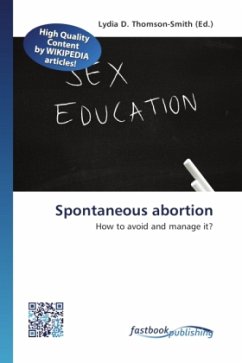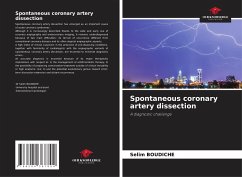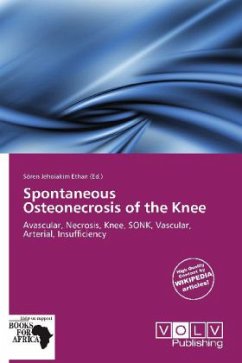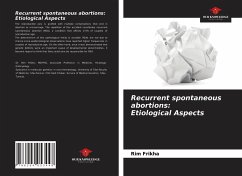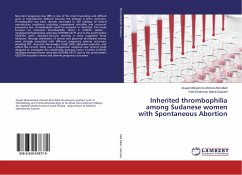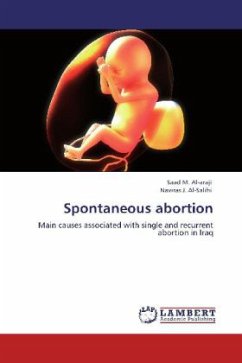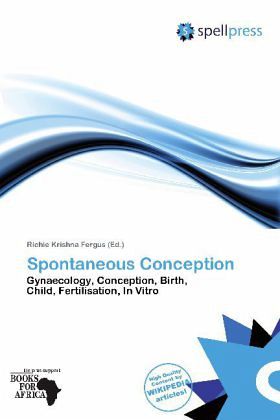
Spontaneous Conception
Gynaecology, Conception, Birth, Child, Fertilisation, In Vitro
Herausgegeben: Fergus, Richie Krishna
Versandkostenfrei!
Versandfertig in 6-10 Tagen
23,99 €
inkl. MwSt.

PAYBACK Punkte
12 °P sammeln!
Please note that the content of this book primarily consists of articles available from Wikipedia or other free sources online. Spontaneous conception may refer to the birth of a second child after the birth of a child conceived through in vitro fertilisation. There is a overall 18% chance of spontaneous conception after an In Vitro Fertilization treatment, but that chance rose to 37% among younger women (less than 27 years). But the likelihood also depends of the sperm performance of the man and the egg count of the woman.It also can refer to conceptions about the world that we form without a...
Please note that the content of this book primarily consists of articles available from Wikipedia or other free sources online. Spontaneous conception may refer to the birth of a second child after the birth of a child conceived through in vitro fertilisation. There is a overall 18% chance of spontaneous conception after an In Vitro Fertilization treatment, but that chance rose to 37% among younger women (less than 27 years). But the likelihood also depends of the sperm performance of the man and the egg count of the woman.It also can refer to conceptions about the world that we form without any formal education. Often these are connected with physics. They may be wrong concepts, like "heavier objects fall faster" or "bigger objects are heavier". Piaget thinks they are made by introspection. Vygotsky believes they may help the learning of scientific concepts more than having no conception about one event.




